Podcast Category: Chronic pain
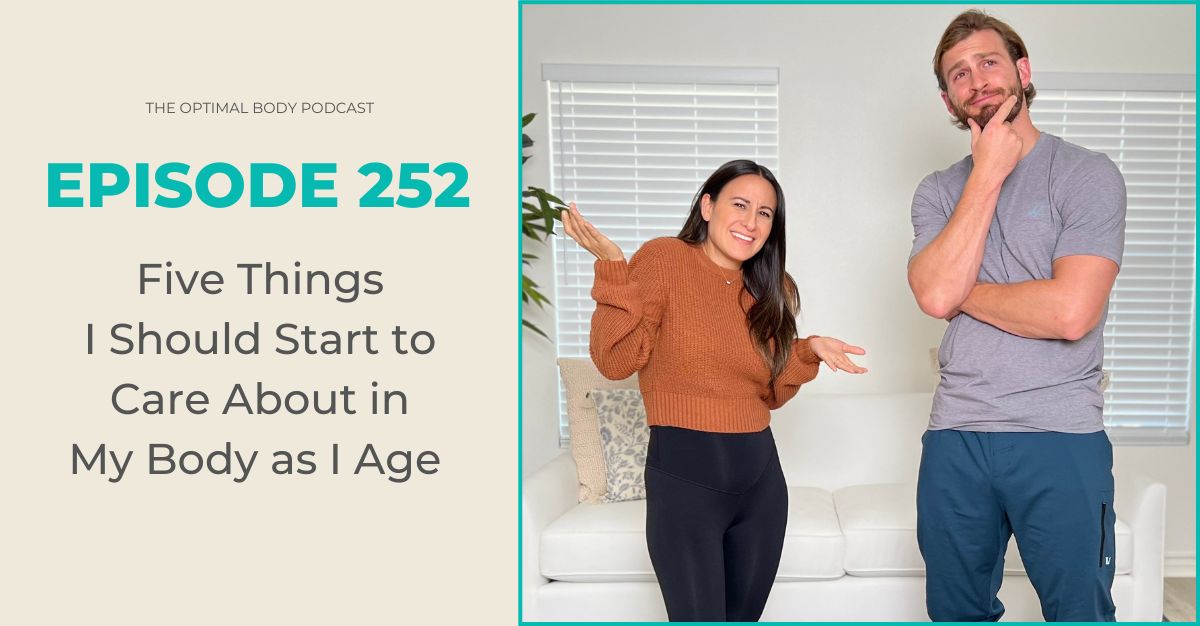
252 | Five Things I Should Start to Care About in My Body as I Age
DocJen & Dr. Dom dive into three techniques you haven’t considered when it comes to your ability to relieve pain and tension, relax, recovery, and reset. They dive into how ribcage and thoracic mobility improve the health benefits of diaphragmatic breathing, how hip mobility is vital to enhancing movement as the main axis of the body, the role the pelvic floor plays in the hips, and how passive range of motion differs from active range of motion. Let’s dive into the solutions you need to optimize healing and recovery!
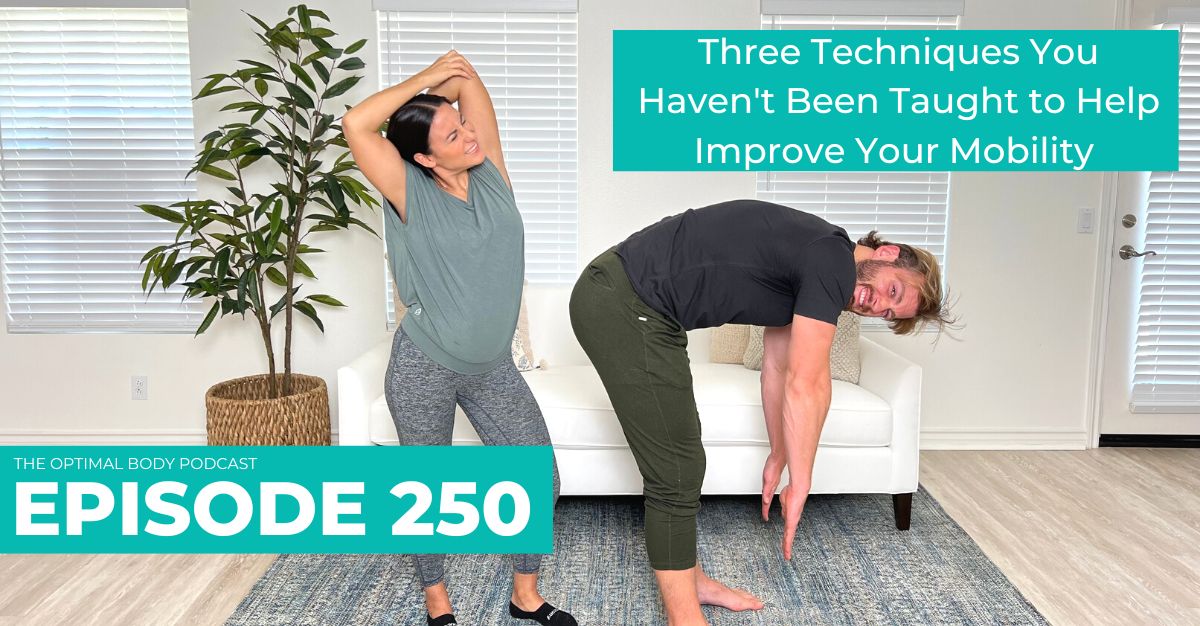
250 | Three Techniques You Haven’t Been Taught to Help Improve Your Mobility
DocJen & Dr. Dom dive into three techniques you haven’t considered when it comes to your ability to relieve pain and tension, relax, recovery, and reset. They dive into how ribcage and thoracic mobility improve the health benefits of diaphragmatic breathing, how hip mobility is vital to enhancing movement as the main axis of the body, the role the pelvic floor plays in the hips, and how passive range of motion differs from active range of motion. Let’s dive into the solutions you need to optimize healing and recovery!
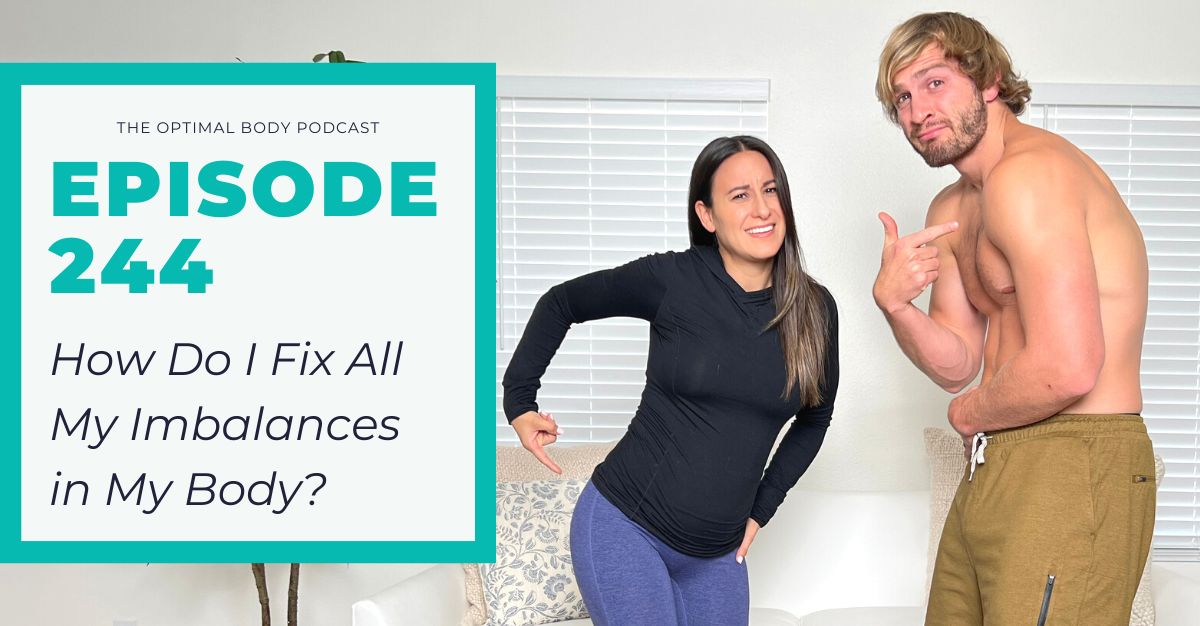
244 | How Do I Fix All My Imbalances in My Body?
DocJen & Dr. Dom discuss muscular imbalances, normalizing asymmetries that are present within our bodies from birth. Discussing gluteal amnesia, leg length discrepancy, cerebral palsy, and breathing conditions, they describe how mind-body connection relates to perpetuating pain and how pain is multifactorial. Then, they describe how you can begin to assess muscle imbalances by evaluating movement tendencies, exploring activations within the body, and addressing movement restrictions
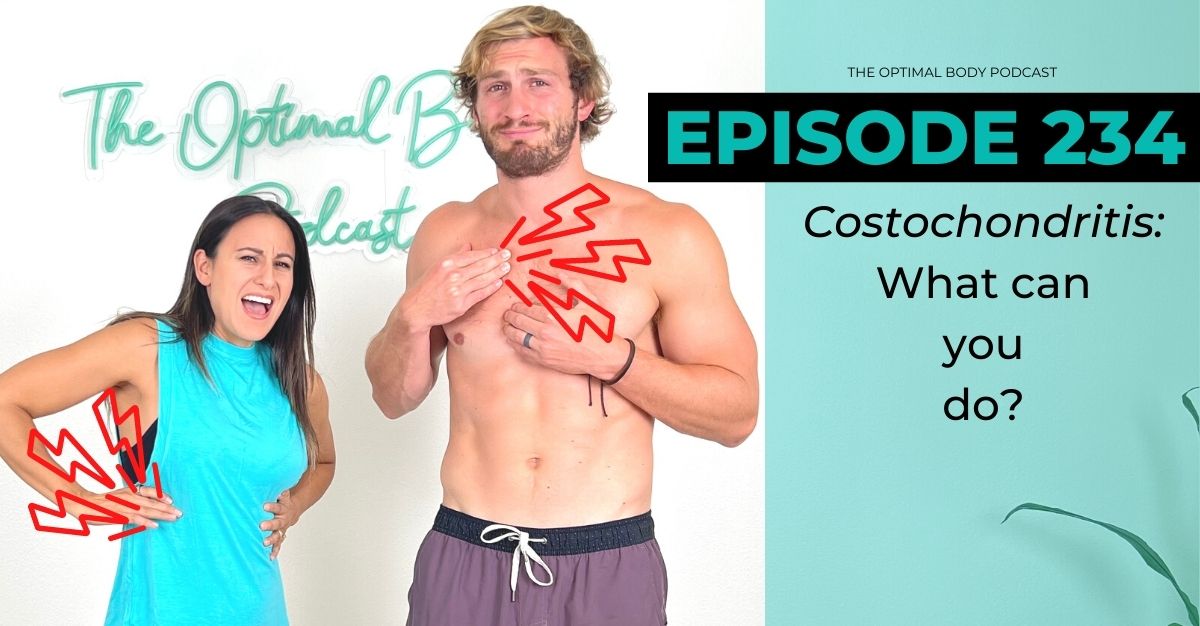
234 | Costochondritis: What can you do?
Welcome to Episode 234 of The Optimal Body Podcast 234 | Costochondritis: What can you do? Pain around the ribcage? Diagnosed with Çostochondritis? DocJen and Dr. Dom break down what’s happening in the body when

200 | Why Do We Get Pain & Will It Ever Go Away?
DocJen & Dr. Dom get to the roots of what could be contributing to your pain. As they reflect on their pain points, they explain the pillars of pain perception and the concept of pain thresholds. Using carr analogies to explain the importance of recovery and downregulation, they discuss how integral language, psychology, and environmental factors are in pain perception.
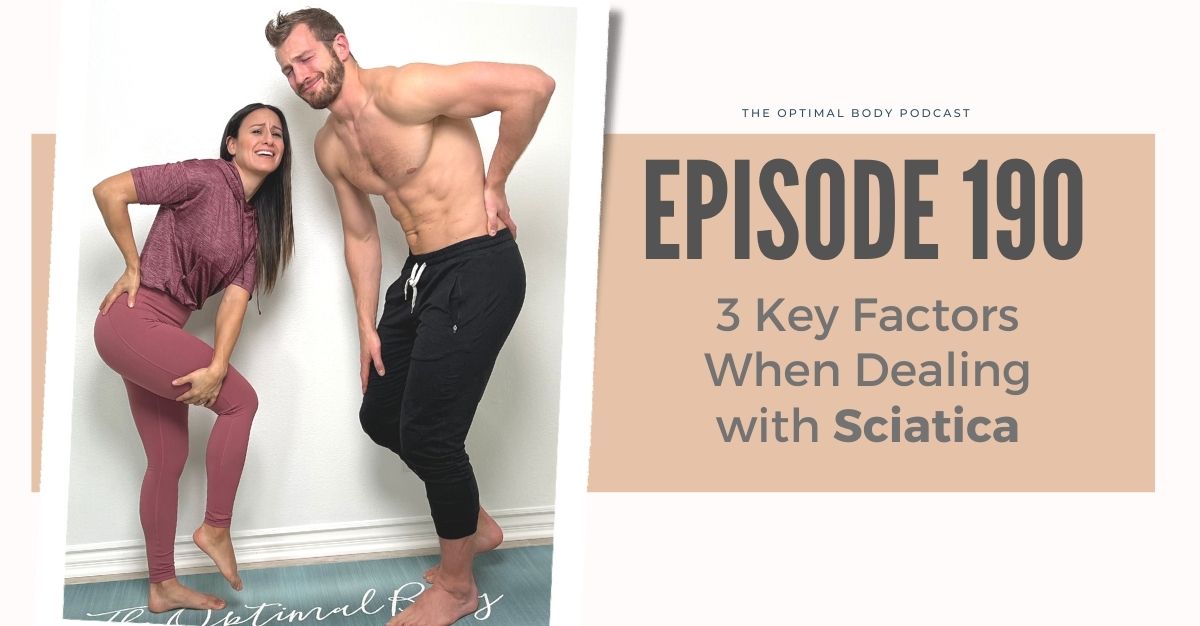
190 | 3 Key Factors When Dealing with Sciatica
Dr. Jen and Dr. Dom dive into what Sciatica ism potential causes and what you can do to begin to desensitize your nerve symptoms. They share three main focusses to approaching Sciatica, diving into simple lifestyle changes you can make in order to help you live your most optimal life!
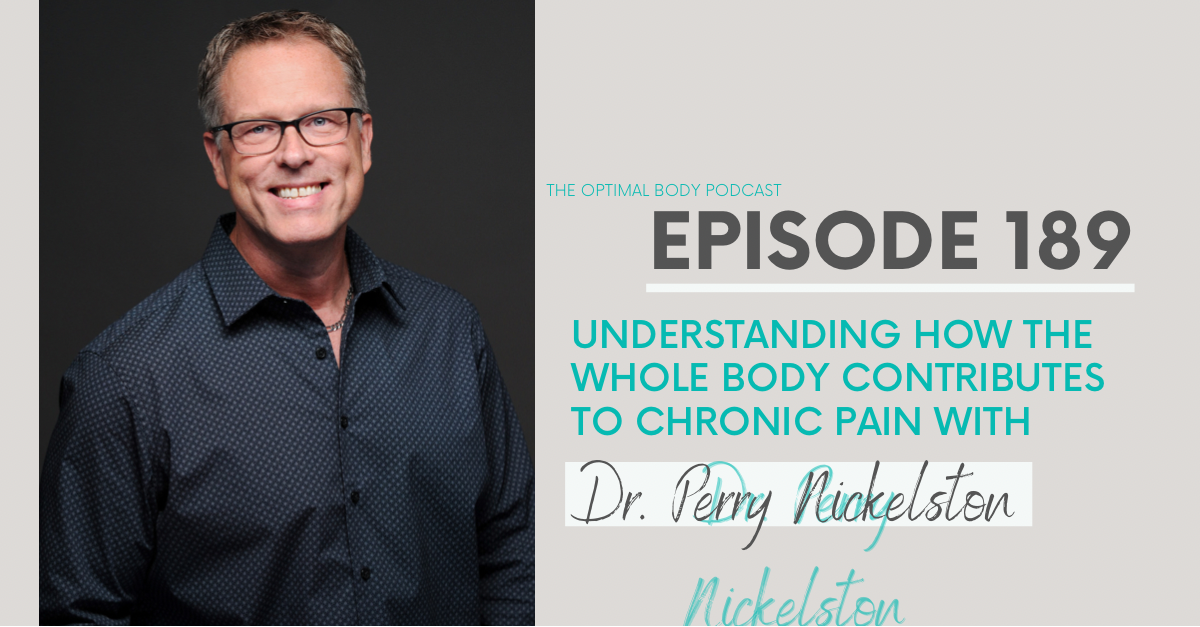
189 | Understanding how the Whole Body Contributes to Chronic Pain with Dr. Perry Nickelston
Dr. Perry shares the origins of his practice and how his practice has evolved as he learned more about how all the systems are truly integrated. Expanding beyond the exact pain point, Dr. Perry shines light on the lymphatic system as a system that connects the whole. With a common focus on nutrient delivery and doing more to see successful results, Dr. Perry shares how less is more and how it may be worth looking at the elimination phase of cellular health. Explaining fundemental physiology, Dr. Perry touches base with the importance of order, nasal breathing, the diaphragm m movement, and stress. With small bouts of tips, Dr, Perry shares the significance of the lymphatic system and how it can be your secret to truly optimizing your health. Finally, he explores the realms of paradigm shifts in pain science, how pain can perpetuate itself with psychological influences, and how pain and inflammation closely relates to efficient and adequate elimination.
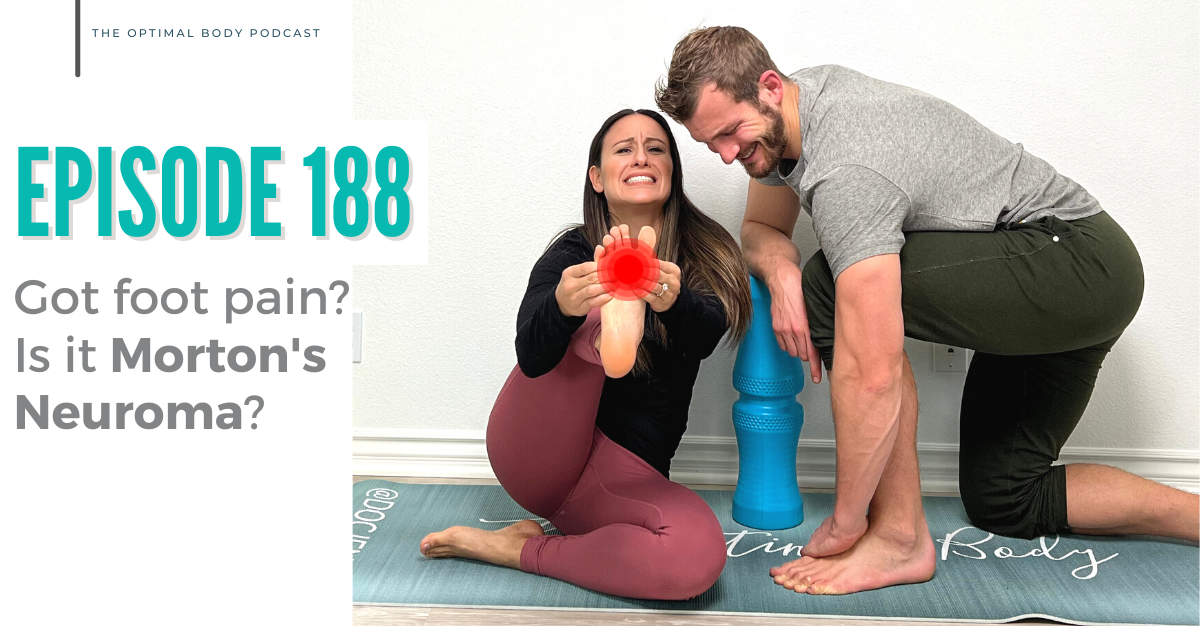
188 | Got foot pain? Is it Morton’s Neuroma?
Could it be Morton Neuroma? DocJen & Dr. Dom explain what Morton’s Neuroma is and the different grades of nerve-related symptoms that could be explained. They describe a few potential causes of Neuroma, including types of footwear or trauma to the foot. Utilizing research, they explain how MRI images may not correlate or confirm symptoms, and how treatment typically surrounds changing footwear, building ankle and foot mobility and strength, promoting relaxation in the foot, and addressing sources of persistent inflammation. Finally, they explain foot exercises to try.
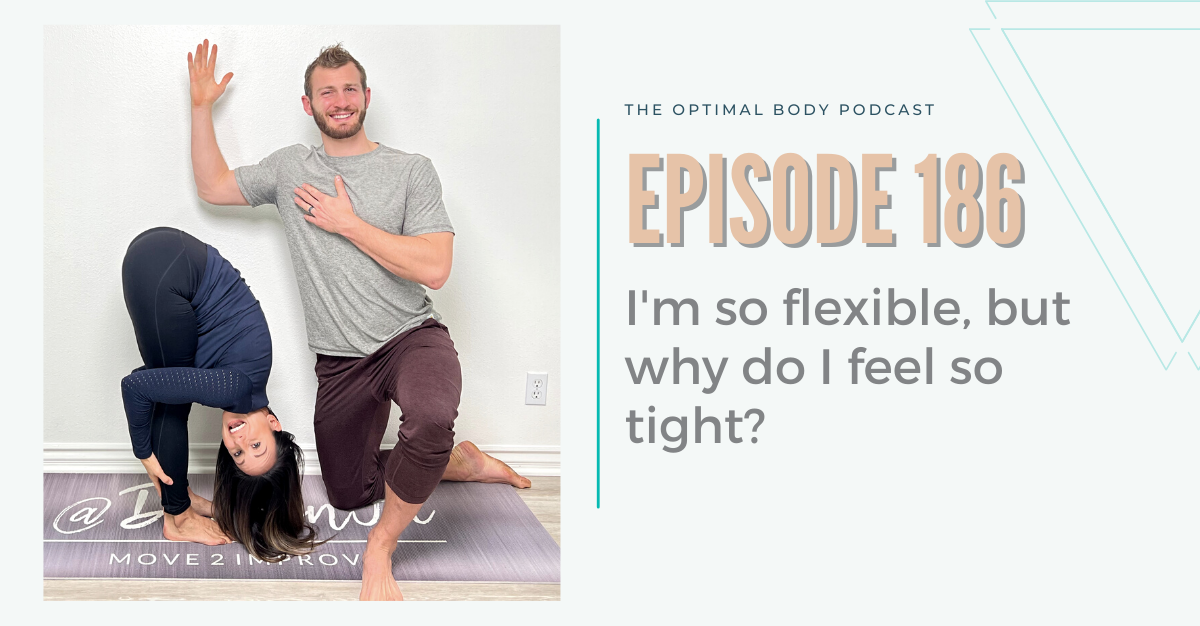
186 | I’m so flexible, but why do I feel so tight?
DocJen & Dr. Dom discuss tests and ways to determine if you are hypermobile, speaking into the spectrum of hypermobility that ranges from localized to Elhers-Danlos Syndrome. Explaining the neurophysiology of tightness briefly, they dive into how you can reduce the sensation of tightness through strength, using examples to relieve tightness in the hamstrings, inner thighs, chest, quadriceps, and hip flexor tightness. They provide a few tips for passive stretching, yoga, and hypermobility, and discuss how mindful breathing can support tightness relief.
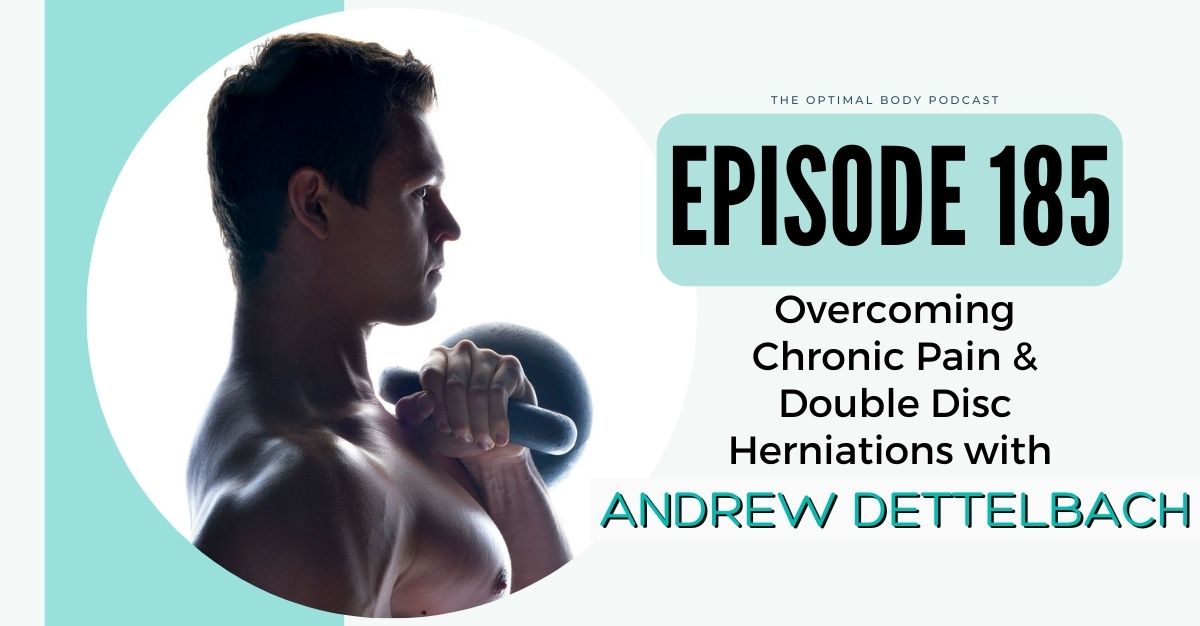
185 | Overcoming Chronic Pain and Double Disc Herniations with Andrew Dettelbach
Andrew walks the path of his EDS diagnosis, and how his chronic pain and many injuries took up the majority of his experience in sport from a young age. We take a peek through Andrew’s perspectives on pain, whether or not it makes him want to stop moving, and his experience with his Herniated Disc. Andrew dives into some heavy-hitter recommendations to approaching movement with EDS and the importance of gaining control over extreme ranges of motion. Finally, he touches base with mindfulness as a main component to navigating pain.







